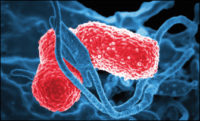For centuries, scientists grappled with a perplexing question: Why does the flu tend to strike hardest during the winter months? The common belief attributed this phenomenon to the notion that viruses thrived in colder temperatures. However, recent evidence challenges this long-held assumption, shedding light on a compelling alternative theory.
Winter often means limited exposure to natural sunlight for many individuals. With shorter daylight hours and the bulk of the day spent indoors under artificial lighting, the skin receives minimal sunlight, hindering the body’s ability to produce Vitamin D.
Notably, adults, particularly during winter, frequently experience bone and muscle aches. This discomfort often stems from a condition known as Osteomalacia, a consequence of Vitamin D deficiency. Osteomalacia leads to bone softening due to impaired bone metabolism.
Crucially, the immune system harbors receptors that bind to Vitamin D. This nutrient plays a pivotal role by reducing the levels of inflammatory proteins called cytokines while simultaneously increasing antimicrobial proteins. These antimicrobial proteins, akin to natural antibiotics, effectively combat invading germs, viruses, and pathogens. This dual action helps bolster the immune system’s ability to combat infections, lowering the risk of developing complications like pneumonia, a primary cause of influenza-related deaths.
There are vitamin D receptors found on cells in the immune system, and vitamin D can bind to these receptors. Vitamin D works in the immune system by reducing levels of inflammatory proteins called cytokines, as well as increasing the amount of antimicrobial proteins, which are naturally occurring antibiotics that destroy invading germs and viruses. This combination of lowering inflammation and increasing antimicrobial defenses can help an individual’s immune system fight infections more effectively. These actions also reduce the risk of developing pneumonia, which is the primary complication of influenza that can result in death.
Vitamin D emerges as a linchpin in immune function. Its deficiency can compromise the immune response, elevating the risk of infections and diseases.
 | Dense Bone - Higher Potency! (60 caps)Proprietary Vitamin D3 Formula - The Sunshine Vitamin - Supports Bone, Immunity, Heart & Brain Health View in Store |
Furthermore, insufficient Vitamin D has been linked to reduced lung function, potentially impacting the body’s capacity to fend off respiratory infections, including COVID-19 and Respiratory Syncytial Virus Infection (RSV).
Dr. R. Edgar Hope-Simpson, a British M.D., did some record keeping and connected flu outbreaks with the shortest day in the year, which varies depending on how far, north or south you are. In the tropics, the shortest days are usually in their rainy season with overcast skies. He postulated: Is it possible that the lack of sunshine caused a shortage of Vitamin D, which was connected to a vulnerability to the flu?
A fascinating new theory seeks to explain why the flu takes hold during the winter months and why it infects mostly the elderly and those who are more sedentary.
Dr. John Cannell is the chief author of a landmark theory that postulates that influenza epidemics are intimately linked to declining Vitamin D levels. In California, Dr. Cannell works with patients at a maximum-security hospitals for the criminally insane. He had become aware that vitamin D is a unique compound with profound effects on human immunity. He lists bone health, cancer prevention and blood pressure lowering effects as an indication that “vitamin D is really quite different from other vitamins.”
Dr. Cannell postulated that many of his patients because of their confinement and other factors might be low on vitamin D. Testing for Vitamin D proved him right, his patients were very low in this important nutrient. He began prescribing 2,000 IU per day for all the patients in his ward. Subsequently a flu epidemic broke out in the ward below his, then rather quickly all wards seemed to be affected – except his. “My patients had intermingled with patients from infected wards before the quarantines” he wrote, “I felt certain that my patients had been exposed to the virus – but none of them contracted the flu.”
Now that we have proven by deduction that vitamin D may have something to do with immunity to the flu, let’s take a look at some scientific evidence. Adrian Gombart of UCLA reported that vitamin D boosts production in white blood cells of one of the antimicrobial compounds that defends the body against germs. The antimicrobial is called cathelicidin and its main targets are bacteria, viruses and fungi. The production of cathelicidin in the body is catalyzed by the presence of vitamin D and there is a direct connection between low Vitamin D levels and low production of cathelicidin.
This rather convincing evidence should have you checking your vitamin D intake. How many days do you get direct rays of the sun on even 20 percent of your body, much less a majority? Most will say: Never! We have become phobic about sun exposure and it has led to a massive amount of vitamin D deficiency present in our society.
Amazingly, some people really have not fully embraced the importance of Vitamin D in their diets. One of the issues with Vitamin D is how it is formulated for better absorption and maximum impact for health.
Emerging research further solidifies the importance of maintaining healthy vitamin D levels to bolster the immune system and protect against respiratory illnesses. To supercharge your immunity during flu season and year-round, consider Dense Bone—a potent blend offering 2,000 IU of Vitamin D3, Vitamin K2, and Calcium, delivering unparalleled immune support.



Is Dr Donsbach still alive? I worked for him at Hospital Santa Monica as nutritionist/chef. I still marvel at his insights that “science ” is just now confirming. His wisdom allowed me to eat eggs, butter and several other healthy things thru all this time. I loved the old boy.
Jackie Wayman
{now living in TX & very retired}
Hi JW Seward…. Yes, Dr. Donsbach is alive and well…. but retired like you. I am his son-in-law. He comes up to visit ever Thursday for lunch. I will pass along your greetings. He will get a kick out of the fact that you happily ate eggs, butter and other healthy stuff the medical community said was “bad” for us.